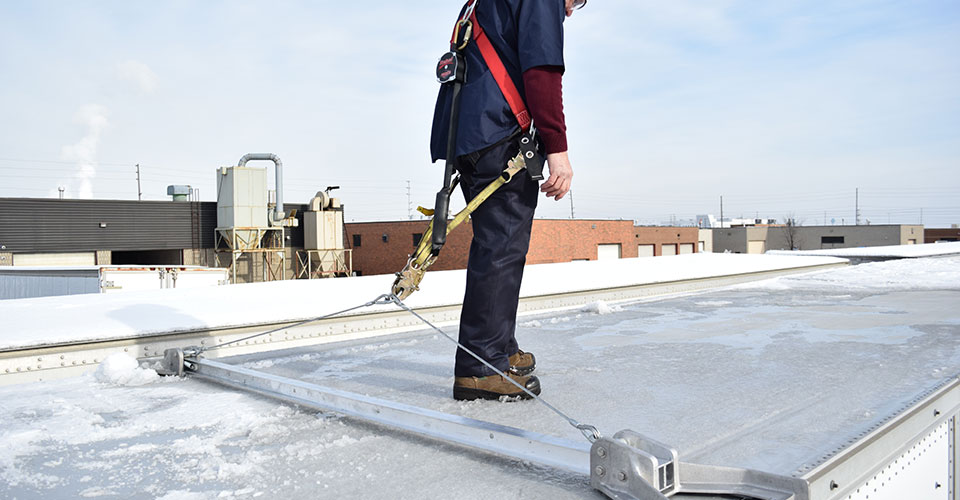
Why This Summer is the time to Re-Evaluate Your Fall Protection Systems
As the summer season rolls in, it brings more than sunshine; it brings risk.
Warmer weather means more roof work, more inspections, and more time spent on top of trailers, and containers, And that means one thing for maintenance managers and safety officers: it’s time to re-evaluate your fall protection systems.
At Eaglehook, we’ve seen the patterns. Summer months are when injuries spike — not because people are being careless, but because the systems in place weren’t designed for the reality of day-to-day work.

Here’s what we recommend doing this season:
1. Audit your current fall protection setup.
Are your workers relying on outdated systems? Are they improvising to “get the job done”? That’s where liability creeps in.
2. Revisit training protocols
Even seasoned techs benefit from a refresher on harness use, anchor points, and rescue plans.
3. Look for scalable, portable solutions
-
Summer is also the season for travel repairs, mobile work crews, and tight timelines. Your fall protection should move with you, not slow you down.
Why Eaglehook?
Eaglehook was built for moments like this. No scaffolding. No installation delays. Just a rugged, OSHA-compliant system that mounts directly to trailers and containers in minutes — protecting your workforce wherever they’re working.
If you haven’t had a chance to see it in action, now’s the time. Click Here or better yet give us a call and we will discuss how Eaglehook can help you get OSHA compliant and save your company thousands per year in liability.
Protect your workforce. Elevate your standards.